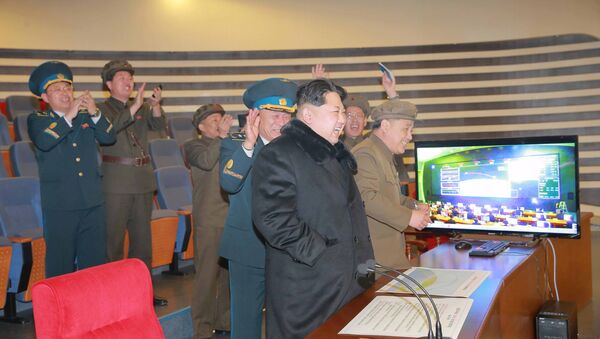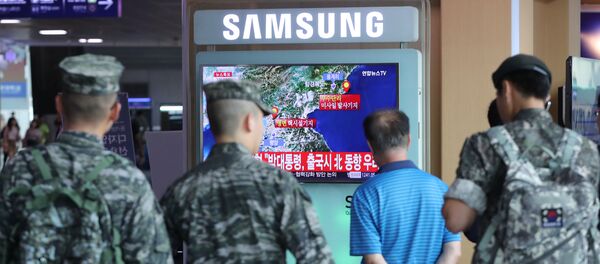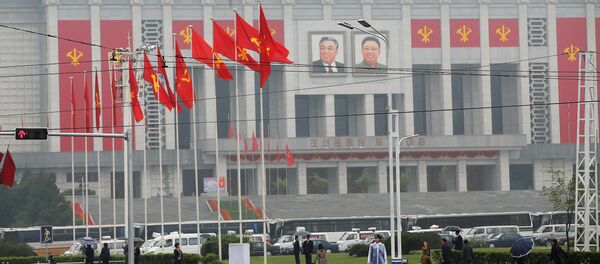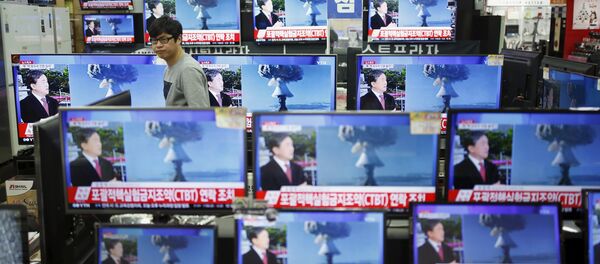US Secretary of State John Kerry, Japanese Foreign Minister Fumio Kishida and South Korean Foreign Minister Yun Byung-se described Pyongyang’s tests and ballistic-missile launches as an international security threat and a hazard to regional stability.
Yun declared, "Our message today is crystal clear: No. 1, North Korea cannot continue to deride the Security Council and the United Nations…No. 2, Kim Jong Un and [the] North Korean regime cannot get away with all their misbehavior and provocations."
"The global community will not be intimidated and will not pull back from our obligations," said Kerry, stating that the US will continue its partnership with Tokyo and Seoul in the effort to roll "back the provocative, reckless behavior of" the DPRK.
Kerry elaborated that "The global community will not be intimidated and will not pull back from our obligations," and called for North Korean leader Kim Jong-un to cease missile launches and nuclear testing immediately, so that denuclearization discussions can resume in good faith.
He added that the international triad and its supporters will "make it clear to a reckless dictator that all he is doing through his actions is isolating his country, isolating his people and depriving his people of genuine economic opportunity."
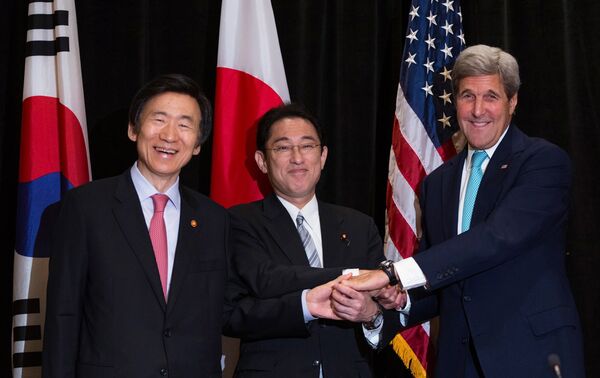
Yun agreed, calling Pyongyang’s actions "a ticking time bomb" and expressed concern that North Korea’s actions could have consequences outside the Korean peninsula."What we see is a looming perfect storm that may not only pounce on Northeast Asia but sweep over the entire world," he said.
The US has been encouraging South Korea and Japan to improve their relationship over the last few months, hoping the two nations can look beyond past disagreements and focus on addressing the North Korean issue.
During a global nuclear summit in Washington DC in April, US President Barack Obama stated the he, along with Japanese Prime Minister Shinzo Abe and South Korean President Park Geun-hye had recommitted to working together to build pressure on the DPRK. "We are united in our efforts to deter and defend against North Korean provocations…We have to work together to meet this challenge." he said.
At Monday’s Meeting, Kashida stated that a "tough" approach must be taken so that Pyongyang understands that its continued disregard for international norms will not go unanswered. "We must make North Korea understand that repeated provocations will isolate them from the international community and that there can be no bright future for them at all," he said.
The three nations released a statement confirming that they "explored ways to work together" to tighten existing sanctions on North Korea through the UN Security Council, along with finding "ways to further restrict revenue sources" to Pyongyang for its nuclear weapons and missiles program.

